MercoPress. South Atlantic News Agency
Stories for July 2021
-
Tuesday, July 20th 2021 - 09:39 UTC
Forgotten Latin America; EU can ill afford to ignore its strategic importance
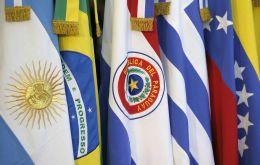
By Ana Palacio (*) – The EU well knows that when it comes to expanding its influence within a country or region, China plays the long game. But China is also adept at identifying opportunities to make rapid progress, and Latin America’s escalating crises represent a golden one.
-
Tuesday, July 20th 2021 - 09:25 UTC
Patagonia lawmakers call for an end to export duties on fisheries produce, fruit, lamb and wool
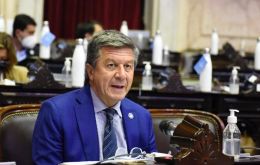
Argentina lawmaker from the province of Chubut, Gustavo Menna has called on the central government to eliminate export duties on fishery products, fruits, ovine meat and wool. The initiative was also drafted by lawmakers Lorena Matzen and Roxana Reyes from the provinces of Rio Negro and Santa Cruz.
-
Tuesday, July 20th 2021 - 09:20 UTC
Chile leads the region on its way to sustainable energy-powered cars

As the leading country in the region on the road to new sources of energy for vehicles, Chile last week added a new charging point for battery-powered engines next to the Nueva Angostura tollbooth and is the first of a total of 5 to be implemented on Ruta 5 Sur between Santiago and Talca.
-
Tuesday, July 20th 2021 - 09:15 UTC
Joseph finally agrees to let Henry take over as Prime Minister of Haiti until the elections
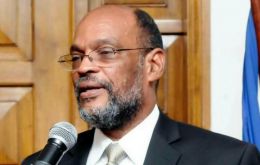
Haiti's acting Prime Minister Claude Joseph finally agreed to step down and allow the formation of a new government under Ariel Henry, who President Jovenel Moïse had appointed two days before his assassination.
-
Tuesday, July 20th 2021 - 09:12 UTC
Europe's push for drastic shift towards electric vehicles may find objections

The European Commission has voted last week to ban the sale of vehicles that run on gasoline or diesel by the year 2035 to change the energy matrix in transport.
-
Tuesday, July 20th 2021 - 09:05 UTC
Argentina and Bolivia have bills in Parliament to boost transitioning to e-cars
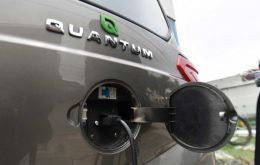
Just as the European Commission sent a bill last week to the European Parliament regarding electric vehicles, the Governments of Argentina and Bolivia are also taking similar paths.
-
Tuesday, July 20th 2021 - 08:31 UTC
England enjoys “Freedom Day” despite fierce opposition
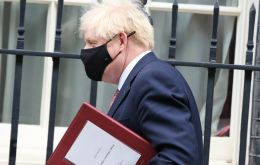
England started Monday enjoying once again all pre-pandemic freedoms after the reopening had been postponed earlier this year due to the appearance of new coronavirus variants.
-
Monday, July 19th 2021 - 09:55 UTC
Argentina committed to a WTO agreement on fishing subsidies – but don't forget the Falklands
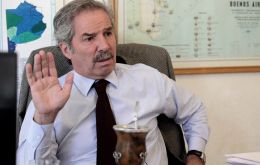
Argentina participated in the recent Trade negotiations of the World Trade Organization at the ministerial level, which addressed the issue of rules for global fisheries and limits to government subsidies to fishing, committing its support for an agreement, but not forgetting the Falkland Islands claim.
-
Monday, July 19th 2021 - 09:40 UTC
Uruguay back in yellow, according to Harvard Index of COVID-19 contagion risk

Uruguay was depicted in yellow Sunday in Harvard's Index of contagion risk, which is tantamount to “moderate” after seven months listed among the more dangerous countries.
-
Monday, July 19th 2021 - 09:35 UTC
Underdogs emerge triumphant from Chile's primary elections
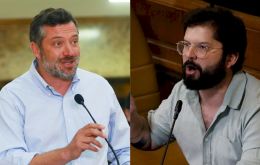
Independent candidate Sebastián Sichel took most of the votes within the right-wing bloc, Chile Vamos, while Frente Amplio Deputy Gabriel Boric was chosen in the left-wing Apruebo coalition after Chile's primary elections held Sunday.
